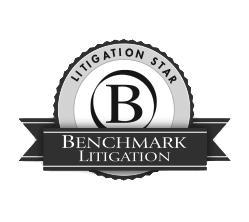 Accounting Giant Settles MD Lawsuit.
Accounting Giant Settles MD Lawsuit.
Ernst & Young to pay $185 million in demise of Merry-Go-Round. In what experts describe as the second largest settlement in MD history. Ernst & Young LLP agreed to settle after it was proven their duplicity and bad advice sank the clothing chain Merry Go Round.
THE SUN
April 27, 1999
Accounting giant settles Md. Lawsuit
Ernst & Young to pay $ 185 million in demise of Merry-Go-Round
Consultant advice blamed
Baltimore lawyers get more than $70 million, creditors $100 million
By Scott Shane
Sun Staff
In what experts describe as the second-largest legal settlement in Maryland history, accounting giant Ernst & Young LLP agreed yesterday to pay $185 million to settle a lawsuit claiming its duplicity and bad advice sank the clothing chain Merry-Go-Round Enterprises Inc.
The size of the settlement represents both an extraordinary blow to the reputation of Ernst & Young, the nation’s third-largest accounting firm, and a colossal windfall to the Baltimore lawyers who took the case. Their share of the deal will be more than $70 million.
Randal C. Picker, an expert on commercial law at the University of Chicago law school, said he is not aware of any other case in which a consultant brought in to manage the turnaround of a bankrupt company was held liable for the failure of the business.
“It will attract enormous attention in the turnaround management community,” Picker said.
“That’s a very large number,” said Rick Swanson, executive director of the Institute of Management Accountants in Montvale, N.J. “It wouldn’t take too many numbers of that size to change the playing field in the public accounting arena.”
The lawsuit filed by Deborah Hunt Devan, a Baltimore attorney appointed by the U.S. Bankruptcy Court to liquidate Merry-Go-Round and pay off its estimated 9,000 creditors, who range from former employees to stockholders.
The settlement, second in state history only to the $4.4 billion tobacco deal, will net more than $100 million in cash to pay off those creditors. Most of the remaining money will go the Pikesville law firm of Snyder, Weiner, and Weltchek & Vogelstein, which represented Devan in return for a 40 percent contingency fee.
In interviews before a gag order was imposed as part of the settlement, Stephen L. Snyder, the firm’s senior partner, said that he and partners Arnold M. Weiner and Robert J. Weltchek had done most of the work on the case.
Two other prominent Baltimore attorneys Snyder brought in on the case a year ago also will share in the fees: William H. Murphy Jr., a former judge and top criminal defense attorney, and Larry Gibson, a University of Maryland law professor and political consultant.
Snyder, 51, said in recent interview that, despite the legal novelty of the case, he saw it as analogous to the medical malpractice cases on which he built his reputation. He said he would call experts to testify that Ernst & Young “violated the standard of care” in financial consulting, just as a doctor’s error might violate such standards in a medical case.
‘A nice payday’
Picker, the Chicago law professor, called the $70 million legal fee “a nice payday” that could touch off a flood of similar litigation.
“The plaintiffs’ bar is like roving pack of lawyers in search of prey, and once they hear that number, they’ll come running,” he said.
No one keeps official track of the biggest verdicts and settlements in civil status. But several local attorneys and law professors could not recall a larger settlement in a single Maryland case, with the sole exceptional of the state’s lawsuit against cigarette makers.
“I can’t think of anything bigger,” said Oscar Gray, an emeritus professor of law at the University of Maryland and expert on civil litigation. He said settlements on behalf of workers injured by asbestos have totaled in the hundreds of million of dollars, but they represented thousands of separate lawsuits consolidated by the courts.
Yesterday’s settlement is a poignant coda to the long-running saga of Merry-Go-Round, which built an empire of nearly 1,500 mall clothing shops on the marketing genius of Leonard W. “Boogie” Weinglass, one of the “diner guys” made famous by Barry Levinson’s film “Diner,” and his partner, the late Harold Goldsmith.
But the company failed to keep up with teen-agers’ fickle tastes. Merry-Go-Round filed for bankruptcy early in 1994, weeks after it hired Ernst & Young to advise it on how to overcome its financial difficulties.
After the company finally closed its doors in 1996, Devan investigated its demise and decided Ernst & Young was at fault. Her lawsuit accused the firm of concealing its relationship with Washington law firm Swidler & Berlin, which had recommended Ernst & Young as turnaround adviser. Swidler & Berlin was representing the accounting firm in a West Virginia lawsuit at the time.
The lawsuit also asserted that Ernst & Young had assigned junior personnel who gave incompetent advice, contributing to the collapse of the company. In court filings, Devan’s experts said the value of Merry-Go-Round before the accounting firm got involved was $800 million; the lawsuit sought $800 million in compensatory damages and $3 billion in punitive damages.
Both sides issued terse written statements and agreed to make no other comment on the case. The settlement, in fact enforces their silence by requiring each party to pay other $100,000 for every “unauthorized disclosure.”
No wrongdoing admitted
Ernst & Young statement declared, “After a thorough review, Ernst & Young decided it was best for the firm and its clients to resolve this matter through a settlement process rather than through further litigation.”
The firm said it admitted no wrong-doing and “believes other parties bear substantial responsibility for the failure of Merry-Go-Round to survive. The firm will look at these parties for contribution to the settlement.”
In settlement papers filed in bankruptcy court yesterday, Ernst & Young indicated that $135 million of settlement will be covered by insurance. The firm also listed several parties it could pursue for a contribution to the settlement, including Swidler & Berlin, other financial consultants and past Merry-Go-Round management.
One source familiar with the case said Ernst & Young is most likely to pursue a claim against Swidler & Berlin, now known as Swidler Berlin Shereff Friedman. A spokesman for the law firm said managing partner Roger Frankel was unavailable for comment yesterday.
In her statement, Devan, the bankruptcy trustee, said she “believes the parties have reached a fair agreement” that will “allow the trustee to move forward in settling outstanding creditor claims.”
Observers of the accounting and management consulting industry said Ernst and Young’s willingness to pay such a huge sum suggests they feared taking the case to a jury. Until recently, a jury trial had been set to begin yesterday in Baltimore Circuit Court.
The accounting firm had repeatedly attempted to delay the trial, and one of its attorneys told Baltimore Circuit Judge Kathleen O’Ferrall Friedman that the case threatened Ernst & Young with a “civil death penalty.” The firm contended it was being made the scapegoat for the complex failures of a major business.
“I find myself rather sympathetic to their argument,” said Swanson of the accountants’ association. “But if they settled that much, they must have felt there was a risk they’d lose at trial.”
Accolades for Weltchek Mallahan & Weltchek
OVER $600 MILLION IN VERDICTS & SETTLEMENTS FOR OUR CLIENTS




